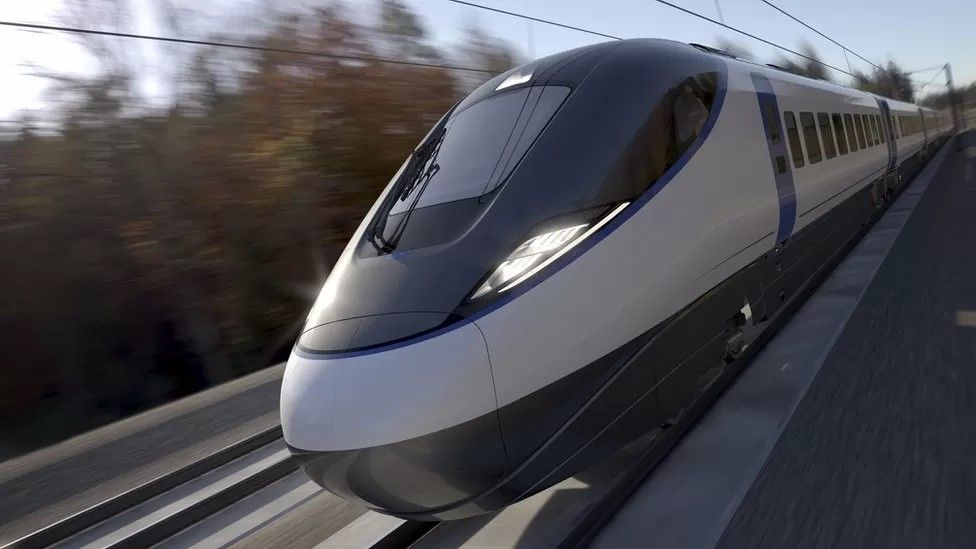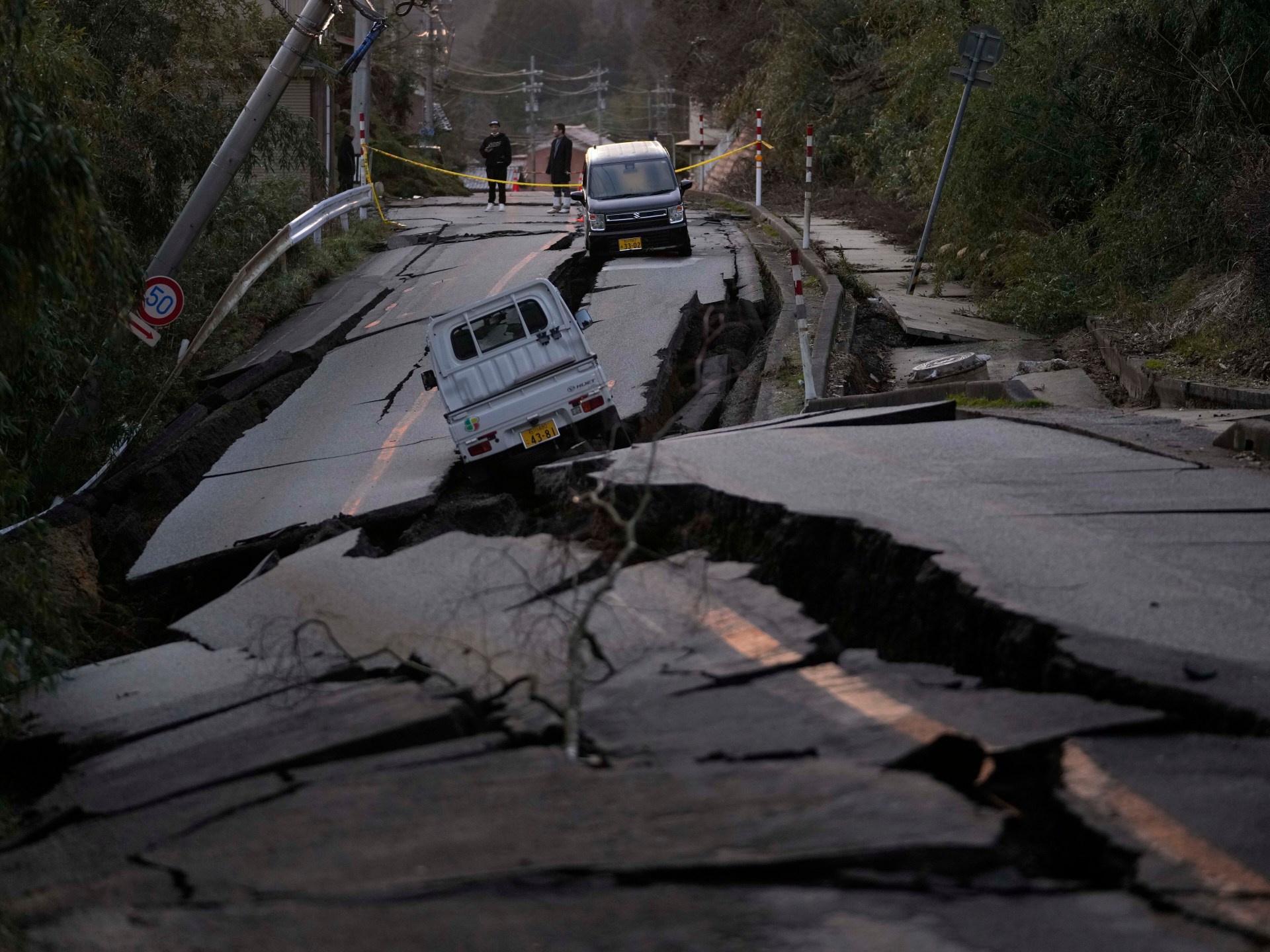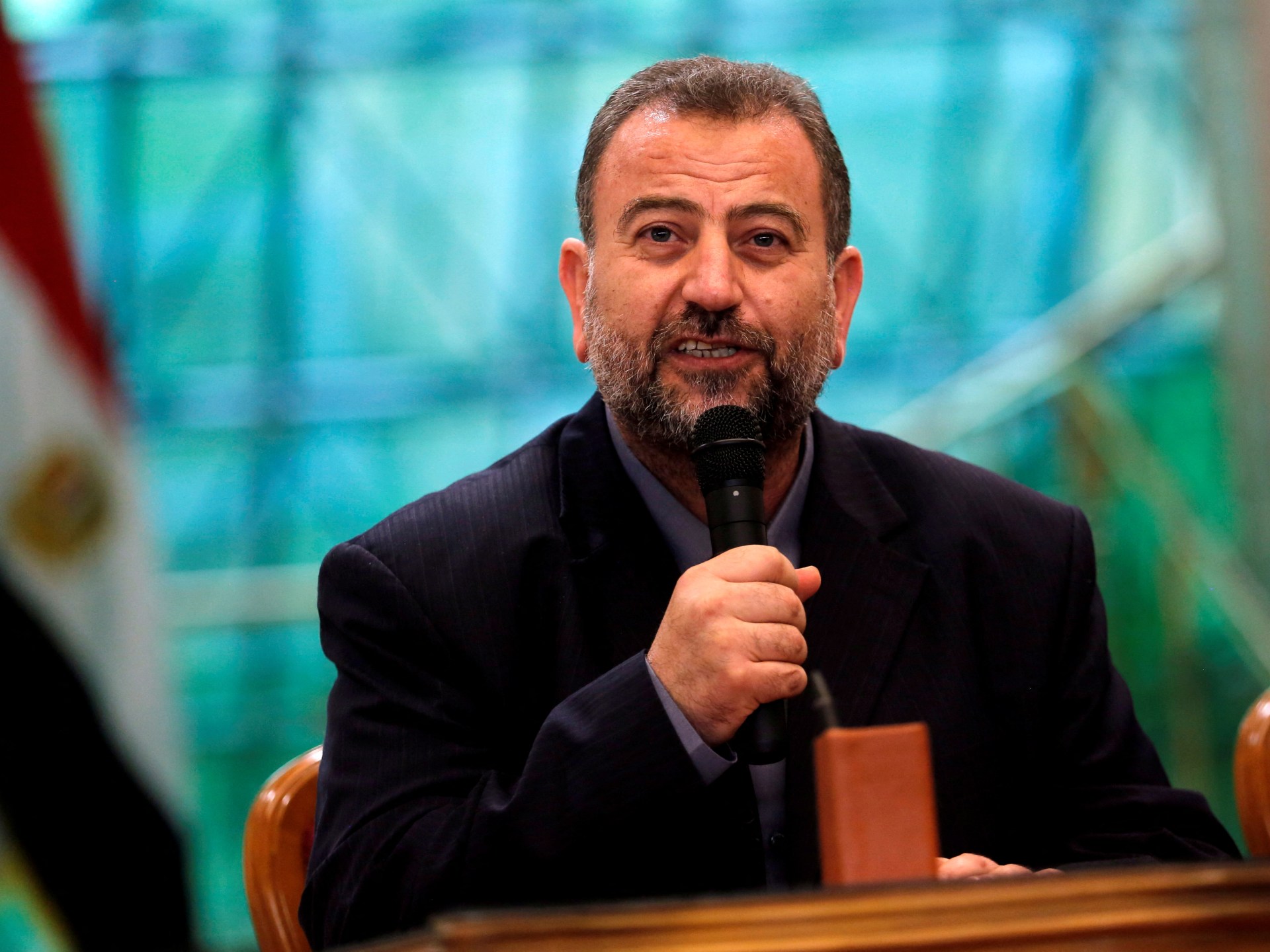 Image source, HS2
Image source, HS2
By Faisal Islam
Economics editor
The government should pause its sale of land acquired for phase 2 of HS2 for up to three years, its independent adviser on infrastructure has told BBC News.
Sir John Armitt warned there was a "real risk" that its plans would make rail travel between Birmingham and Manchester "even more congested".
Rishi Sunak recently announced he was axing the HS2 link to Manchester and selling off properties purchased.
The government said it was delivering "transport that matters most".
The opposition has accused the government of "salting the earth" and "sabotage" of a project that had enjoyed a decade-and-a-half of cross-party support.
In its recent announcement on HS2, the government revealed a plan to quickly sell off properties that had been purchased to make way for the extended line.
Sir John, who is the chair of the National Infrastructure Commission, said that the decision to sell property was a "mistake" and that options should be kept open.
"I think it's a mistake. I think that the land should be kept for at least two or three years to give the opportunity for people to revisit that and look at what can be done within that space and find a more cost-effective solution, not write it off today," he said.
"I am disappointed because I think it's what we often describe as a sort of knee-jerk, snap reaction."
He urged the government to "pause" on that and have "a proper consideration about how best we can connect Birmingham and Manchester and give us that improved capacity that we still need".
Specifically, Sir John said that a full evaluation of the government's proposal - known as Network North - to spend the funding on a range of alternative local projects should be made, as the government no longer had a proper integrated rail plan.
"We had an integrated plan a few weeks ago, we've now lost that. There are a number of projects, some of which already existed, some new ones. Let's get those properly turned into a well-thought-through, integrated plan for the future," he said.
Earlier this month, the Department for Transport permanent secretary wrote to MPs saying that the benefit-cost ratio of HS2 was now "significantly below" one.
This means the £45bn plus of public money spent on Pphase 1 will generate significantly less in economic benefits. It will effectively lose money for every pound spent.
There is no way that the project as it has now crystallised, a stump of a line between London and Birmingham, would have been commissioned.
The project has delivered the most expensive bits - tunnels and viaducts in straight lines through parts of London and the South - and failed to deliver the actual benefits, of extra capacity and connections to and within the North.
The government has said the "strategic case for HS2" to help rebalance the economy "no longer applies". There are now less than half the trains originally envisaged to travel on the half-finished line.
The only way the decision to finish phase 1 was made to add up was by, essentially, writing off the costs so far as "sunk costs", and include both the benefits and costs to the taxpayer of the link to Euston.
The government has already reallocated the public spending on Euston to Network North's projects in the south.
Sir John said that it was "absolutely vital" the HS2 link to Euston was delivered, with public money if necessary.
A government spokesperson said: "Delivering high-quality infrastructure is the foundation of our future growth.
"Our Network North plan will deliver the transport that matters most to people, and we're adopting a fairer and more pragmatic approach to meeting net zero that supports households and families to make greener choices whilst easing the burdens on working people.
"We are delivering over £600bn of planned public sector investment in infrastructure, R&D and defence over the next five years, including an unprecedented package to improve connections in our city regions and billions to decarbonise buildings."

 Movie
Movie 6 months ago
114
6 months ago
114 






![Presidents Day Weekend Car Sales [2021 Edition] Presidents Day Weekend Car Sales [2021 Edition]](https://www.findthebestcarprice.com/wp-content/uploads/Presidents-Day-Weekend-car-sales.jpg)



 English (United States)
English (United States)